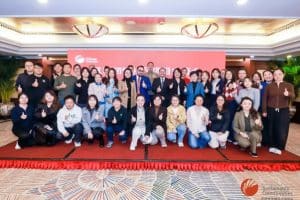Editor’s Note
This report originally appeared on ChinaFile. Please find the original here.
The Foreign NGO Law and civil society cooperation more generally featured at the inaugural U.S.-China Social and Cultural Dialogue on September 28. As described in the U.S. statement on the dialogue, “Both sides discussed China’s foreign NGO management law, and concurred that it will not impede the legal activities of American NGOs in China. The United States looks forward to consultations with China on the foreign NGO management law before the end of this year.” Key in this brief mention is inclusion of the word legal, which neatly concludes that only legal activities should be permitted, without specifying which types of NGO activity may be found illegal under certain provisions of the law. It is also noteworthy that both the Chinese and American read-outs of the dialogue note that the United States looks forward to additional consultations on the law but does not mention Chinese hopes or expectations.
The Chinese and American statements about the dialogue also both emphasize civil society cooperation in the fields of women’s empowerment, gender equality, youth, and athletics. The China NGO Project notes that while youth-related work is well-represented among those foreign NGOs that have successfully registered or carried out temporary activities in China, women’s issues, gender equality, and sports are not very common areas of focus.
The U.S.-China Social and Cultural Dialogue is one of four bilateral dialogues instituted this year as a means to replace the Strategic and Economic Dialogue, which had been a key coordination mechanism for the two countries beginning in 2009 (and which itself replaced the Strategic Economic Dialogue instituted in 2006). U.S. Secretary of State Rex Tillerson and Chinese Vice Premier Liu Yandong chaired the inaugural 2017 dialogue.



